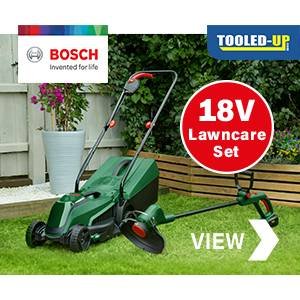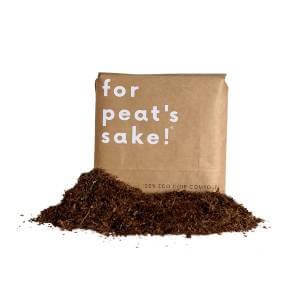Introduction
Welcome to the ultimate guide on how to grow edible mulberries right in your own backyard in the UK. In this step-by-step guide, we will take you through everything you need to know to successfully grow and enjoy these delicious berries. So, roll up your sleeves and get ready to embark on a rewarding journey of growing your own mulberries!
Why Should I Grow Mulberries?
There are plenty of reasons why growing mulberries is a fantastic idea. Firstly, mulberries are packed with nutrients, including antioxidants, vitamins, and minerals. They offer a range of health benefits, including boosting the immune system, improving digestion, and promoting heart health. Secondly, mulberries are incredibly versatile and can be used in a variety of dishes, from jams and pies to smoothies and salads. Lastly, growing your own mulberries allows you to enjoy the freshest and tastiest berries right from your garden.
Where is the Ideal Location to Grow Mulberries?
Mulberries thrive in full sun, so choose a location in your garden that receives at least six hours of direct sunlight each day. They also prefer sheltered spots to protect them from strong winds, as the branches can be quite delicate.
Soil Type and Preparing the Soil
Mulberries prefer well-draining soil with a pH level between 6.0 and 6.5. Before planting, prepare the soil by removing any weeds and rocks. It’s also a good idea to incorporate organic matter, such as compost or well-rotted manure, to improve the soil’s fertility and drainage.
Watering Tips and Hints
While mulberries are relatively drought-tolerant, they still require regular watering, especially during dry spells. Water deeply, ensuring the soil is moist but not waterlogged. Mulching around the base of the tree will help retain moisture and suppress weeds.
Sowing and Planting Mulberries
If you prefer to start from seeds, soak them in water for 24 hours before sowing them in pots filled with seed compost. Keep the pots in a warm, sunny spot and water regularly. Once the seedlings have grown to a suitable size, transplant them into larger pots or directly into the ground.
How to Grow Mulberries from Seed
To grow mulberries from seed, follow these steps:
- Collect ripe mulberries and remove the seeds from the fruit.
- Wash the seeds to remove any pulp.
- Stratify the seeds by placing them in a plastic bag with damp peat moss or vermiculite. Seal the bag and refrigerate it for 10 to 12 weeks.
- After stratification, sow the seeds in pots or directly in the ground.
- Keep the soil moist and provide adequate sunlight for germination.
- Transplant the seedlings when they are strong enough.
How to Plant Out Mulberries
When planting out mulberries, dig a hole that is twice as wide and deep as the root ball. Place the tree in the hole, ensuring that the soil level matches the level of the surrounding ground. Backfill the hole with soil, firming it gently around the roots. Water thoroughly after planting.
General Care for Mulberries
Mulberries require minimal care once established. Prune the tree during the dormant season to remove dead or damaged branches and maintain a desirable shape. Apply a balanced fertilizer in early spring to promote healthy growth. Regularly check for pests and diseases, and take appropriate measures to control them.
How to Harvest Mulberries
Harvesting mulberries is a joyous experience. The berries are ready to be picked when they are fully ripe and have turned dark in color. Gently pluck them from the tree, being careful not to crush the delicate fruit. Mulberries do not ripen off the tree, so only pick what you can consume or store.
How to Store Mulberries
If you have an abundant harvest, you can store mulberries in the refrigerator for up to a week. To prolong their shelf life, avoid washing them until you are ready to use them. Alternatively, you can freeze mulberries by spreading them in a single layer on a baking sheet and then transferring them to a freezer bag once frozen.
Problems in Growing Mulberries: Common Pests and Diseases
While mulberries are generally hardy, they can be susceptible to certain pests and diseases. Some common pests include aphids, caterpillars, and scale insects. To control these pests, you can use organic insecticides or introduce natural predators. Mulberries can also be affected by diseases such as powdery mildew and root rot. Proper sanitation, good air circulation, and regular inspections can help prevent and manage these issues.
Where to Buy Mulberries
You can purchase mulberry trees from local nurseries, garden centers, or online suppliers. Choose reputable sources to ensure you are getting healthy and disease-free plants. Consider buying from suppliers who specialize in fruit trees or native plants for the best selection.
What are the Best Mulberry Varieties to Grow and Why?
There are several mulberry varieties suitable for growing in the UK. Some popular choices include ‘King James’, ‘Chelsea’, and ‘Illinois Everbearing’. Each variety has its own unique characteristics, such as flavor, size, and growth habit. Consider your preferences and the specific growing conditions in your area when selecting the best mulberry variety for your garden.
What Tools Will I Need to Grow Mulberries?
When it comes to growing mulberries, you don’t need any specialized tools. However, having a few basic gardening tools will make the process easier. These may include a spade or shovel for digging, pruning shears for trimming, and a watering can or hose for watering.
Conclusion
Growing your own mulberries is a rewarding and enjoyable experience. With the right location, soil preparation, and care, you can harvest a bountiful supply of delicious berries. Whether you use them in recipes or enjoy them fresh, mulberries are a delightful addition to any garden. So, get started today and embark on your journey to grow your own mulberries!
Frequently Asked Questions
Q: Can I grow mulberries in containers?
A: Yes, mulberries can be grown in containers, provided you choose a suitable dwarf or patio variety and provide adequate care.
Q: How long does it take for a mulberry tree to bear fruit?
A: Mulberry trees typically start bearing fruit within 2 to 3 years of planting, although this can vary depending on the variety and growing conditions.
Q: Can I grow mulberries from cuttings?
A: Yes, mulberries can be propagated from hardwood cuttings taken in winter. However, growing from cuttings may take longer to establish compared to growing from seeds or buying established plants.
Q: Are mulberries self-pollinating?
A: Most mulberry varieties are self-pollinating, meaning they do not require another tree for cross-pollination. However, having multiple trees can increase fruit production.
Keywords: growing mulberries, how to grow mulberries, grow your own mulberries, edible mulberries, ideal location to grow mulberries, soil type for mulberries, watering tips for mulberries, planting mulberries, growing mulberries from seed, general care for mulberries, harvesting mulberries, storing mulberries, problems in growing mulberries, common pests and diseases of mulberries, where to buy mulberries, best mulberry varieties, tools needed to grow mulberries, growing mulberries in the UK, growing mulberries in containers, mulberry tree fruiting time, growing mulberries from cuttings, self-pollinating mulberry varieties.




































